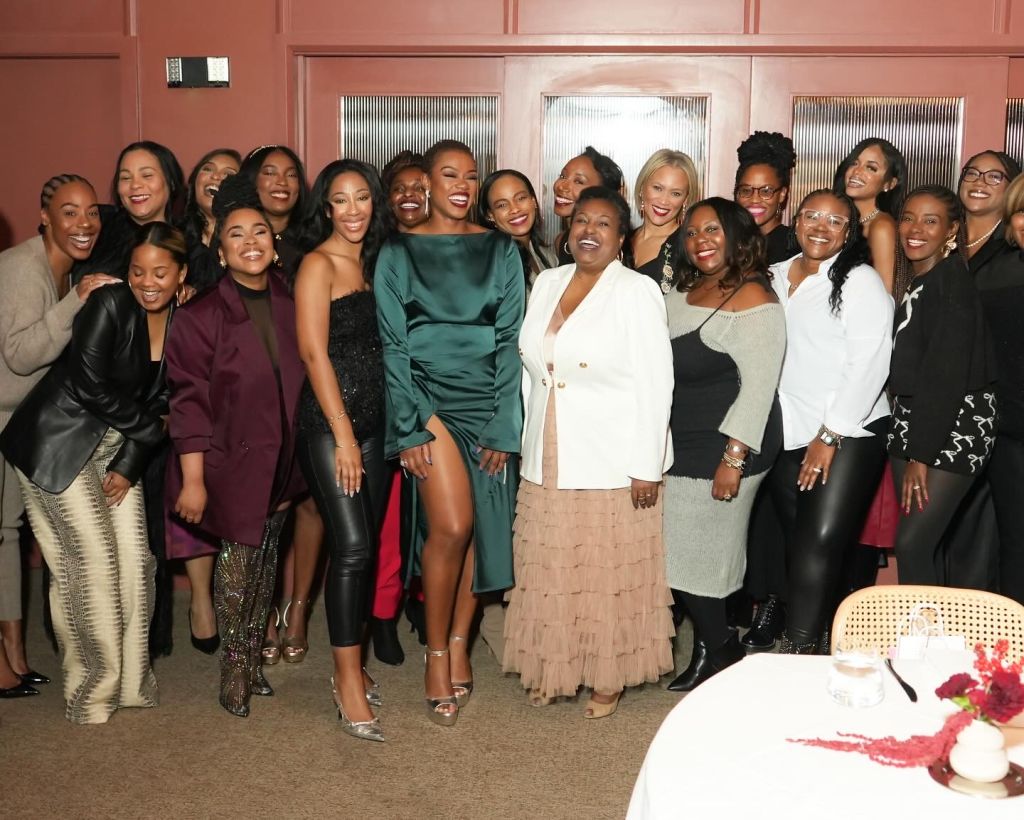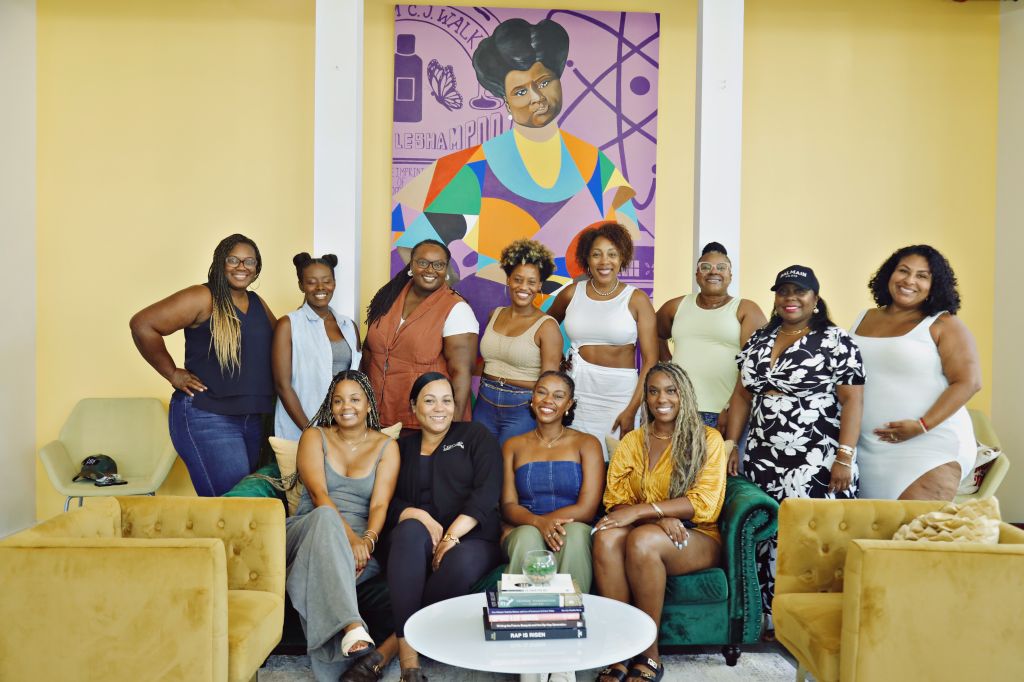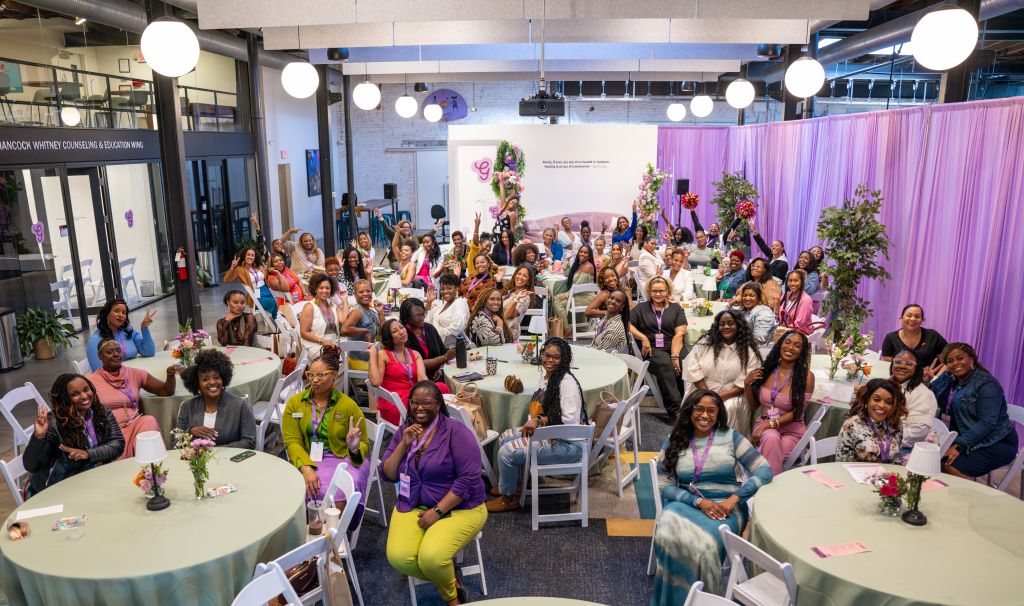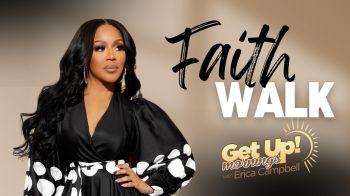How Black Women Are Rewriting Philanthropy in the South
For Us, By Us: How Black Women Are Rewriting Philanthropy In The South

When Outkast’s André 3000 stood on the Source Awards Stage in 1995 and declared,” the South got something to say,” he wasn’t just defending Southern hip-hop; he was also forecasting the influence the South would have in the future. Nearly three decades later, those words still resonate — not just in music and culture, but in how the South is reshaping philanthropy.
Beneath the Mason-Dixon Line, a quiet revolution is unfolding. Black women are redefining what it means to give, and they’re doing it together. Through collective giving circles, they are shifting philanthropy from transactional charity to transformational change. Their work is rewriting the narrative of who leads in philanthropy, who benefits, and what it looks like when resources flow directly into the hands of those closest to the community.
A Growing Movement
In a time when philanthropy often feels institutional and distant, Black women across the South are bringing it back home. Black philanthropy started in grassroots spaces such as living rooms, church basements, and community kitchens, and has always been grounded in relationships.
This model of giving reflects a truth long understood in Black communities that generosity is not measured only by wealth but by the willingness to act. From passing the plate at church to gathering supplies for a neighbor in need, collective giving has always been part of our story. What’s changing now is the recognition, visibility, and organized scale of these efforts.

Bringing Philanthropy Home
Despite the challenges Black philanthropy groups have faced, southern giving circles like Geaux Girl Giving, the Society of Clotilda, and HERitage are flourishing. Their growth challenges the long-standing reality that minority-led nonprofits often receive only a fraction of the funding given to majority-led organizations.
By pooling resources, fostering trust, and centering community voices, these collectives are making new rules. Their approach resists traditional philanthropy’s top-down model and instead prioritizes shared power, accountability, and love.
Their impact goes far beyond grants. These circles are nurturing ecosystems of support that include mentorship, civic education, leadership cultivation, and intergenerational community building. They are creating not just funders, but networks of care.
When Giving Becomes Personal
When my friend and I launched our nonprofit, Black Women for Self, one of the very first organizations to invest in us was a Black women’s giving circle.
Their grant wasn’t just about dollars; it was about affirmation. It was about being seen, trusted, and uplifted by women who understood the urgency of our mission. That early support gave us both resources and confidence. It allowed us to expand our work, but more importantly, it reminded us that philanthropy, at its best, is rooted in community.
That experience revealed a truth that continues to guide organizations, which is that collective giving is powerful not because of the size of any one gift, but because of the unity, care, and vision behind it. And across the South, Black women are carrying this torch forward.
Black Women-Led Giving Collectives
Geaux Girl Giving – New Orleans, LA
In New Orleans, Geaux Girl Giving centers its work on two of the city’s most vital assets: its young Black girls and Black women. The circle raises funds to support initiatives that support Black women-led nonprofits, nurture leadership, amplify creativity, and encourage mental wellness and civic engagement among Black girls and young Black women.
Their model does more than distribute dollars; it builds relationships. Geaux Girl Giving members not only contribute financially but also invest their time and expertise. The result is a philanthropic community that demonstrates how resourcing Black girls and women is an investment in the city’s resilience and future.
Society of Clotilda – Mobile, AL
In Mobile, Alabama, the Society of Clotilda takes a different but equally transformative approach. Named for the last known slave ship to arrive in the United States, the circle anchors its giving in the wellness of Black women and their children.
The group works to preserve African American heritage by supporting the arts and culture makers who are willing to help change the wellness narrative for women and their children. Their philanthropy is more than a response to need; it is an act of justice and healing.
HERitage Giving Fund – Dallas, TX
In Texas, the HERitage Giving Fund aims to address the chronic underfunding of Black-led nonprofits. HERitage pools the contributions of its members to provide grants, advocacy, and visibility to organizations across the state.
But HERitage doesn’t stop at funding. The circle invests in leadership development, encourages collaboration, and amplifies the voices of women and communities who are often excluded from mainstream philanthropy. In doing so, they challenge the narrative of who holds power in the philanthropic sector.
HERitage’s work demonstrates that philanthropy is not simply about charity; it’s about shifting resources and influence toward those with the vision to create real change.
The Future of Black Philanthropy

As Black Philanthropy Month reminds us, generosity is not just about money — it’s about the will to act, together. In the South, Black women are proving that collective giving is not just a strategy but a force for freedom.
These extraordinary giving circles are just one small example of what becomes possible when Black women invest in each other. The support they give helps plant seeds that continue to grow. Multiply that by dozens of giving circles across the region, and the result is a powerful movement shaping the future of philanthropy.
Black women in the South have always had something to say. Today, through collective giving, they’re saying it loud and clear: we are the givers, the visionaries, and the architects of lasting change.
For Us, By Us: How Black Women Are Rewriting Philanthropy In The South was originally published on hellobeautiful.com









